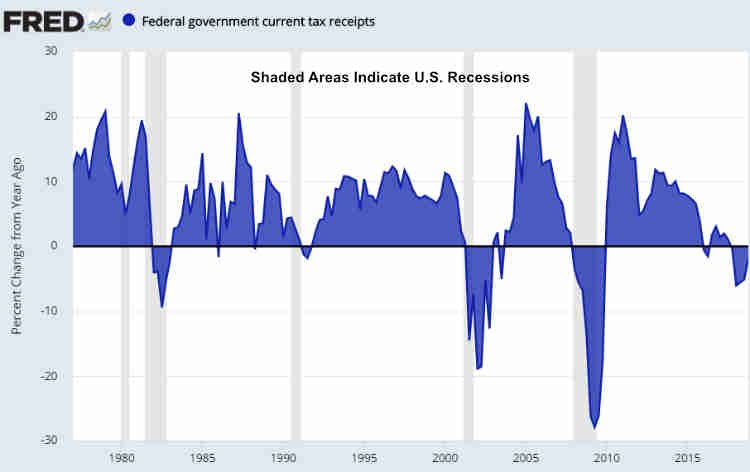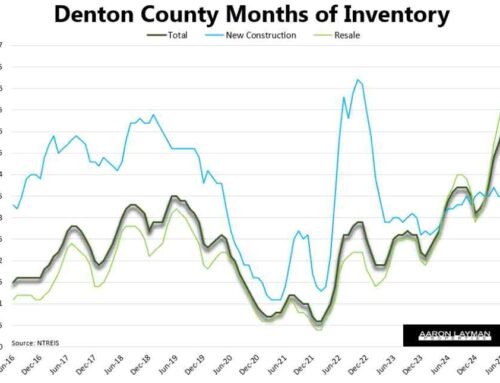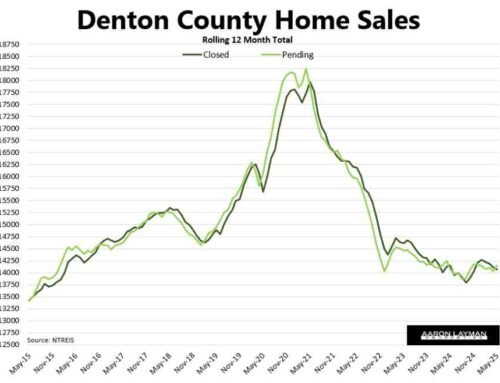Denton County new home sales are enjoying a spring revival courtesy of lower mortgage interest rates. Preliminary March data for North Texas shows that home sales rebounded in March, with new home sales driving the action. Buyers were obviously lured off the fence in the DFW area when it came to buying new homes. It also helped that new home builders were keeping price points lower. The average price of new homes in Dallas-Fort Worth still shows to be softening.
Pending sales data for March looks a bit weaker than closings, so it will be interesting to see how the spring and summer selling season goes. The Denton County real estate market is now increasingly dependent on ultra low mortgage rates. Now that the echo bubble in DFW real estate has been blown by overly loose Fed policy, there is no easy way forward in terms of sales growth. The preliminary home sales numbers for March look good, but the pending data indicate there are still some bumps in the road.
Weak auto sales in March provided a similar picture, as major automakers put an end to soft first quarter automobile sales. Chevy’s first quarter Silverado pickup sales declined 15 percent in the quarter, and other car makers also saw weakening demand. Judging from GM’s first quarter sales, the giant tax cut for Wall Street hasn’t trickled down as promised…
Folks, please take a seat, hold on to something, and forgive me for what happens next…
The NEWLY redesigned Silverado is down by 15.66% in Q1!!! pic.twitter.com/Omehu4YXKd
— Daniel Ruiz (@DRuizG80) April 2, 2019
The recent spike in regional mall vacancies, moving higher from already elevated levels, also points to additional stress within the economy. The Federal Reserve is in an increasingly precarious position. Either the economy is great, and the call for higher rates becomes a theme again, or the economy is fragile (which it is), and the Fed remains on the sidelines attempting to levitate already-inflated asset prices. Either way, the carnival barkers at the Fed have a major problem on their hands.
The problem with the Denton County real estate market is the same one we’re seeing play out across the country. The Fed’s efforts to stimulate inflation have certainly goosed home prices, but wage growth has lagged severely. The Fed knows it has been destroying the purchasing power of the currency, but it doesn’t care as long as its systemically important constituents are benefiting from the wealth extraction mechanism they are supervising. It is no secret why wealth inequality is rising in the United States, and why the broader economy is stagnating.
Pending home sales data for March provide another clue to this picture. While new home sales were rising last month, existing homeowners were not as excited to unload properties at a discount to what they originally thought they might get. Many homeowners are now trapped with low mortgage rates or properties that may not fetch more than the original purchase price just a year or two ago.
The longer the Fed continues to fight the completion of the market cycle, the more tinder they create for the next recessionary firestorm. It really is that simple. The officials in the Marriner Eccles building would like you to believe they really know what they are doing and that they have your best interest in mind. That is simply part of con game known as modern Fed monetary policy. If you are in the market for a new home in Denton County, or anywhere in the country for that matter, this is certainly a development you need to be aware of.
“While everyone enjoys an economic party the long-term costs of a bubble to the economy and society are potentially great. They include a reduction in the long-term saving rate, a seemingly random distribution of wealth, and the diversion of financial human capital into the acquisition of wealth. As in the United States in the late 1920s and Japan in the late 1980s, the case for a central bank ultimately to burst that bubble becomes overwhelming. I think it is far better that we do so while the bubble still resembles surface froth and before the bubble carries the economy to stratospheric heights. Whenever we do it, it is going to be painful, however.” Larry Lindsey – Fed Governor 1996













Leave A Comment